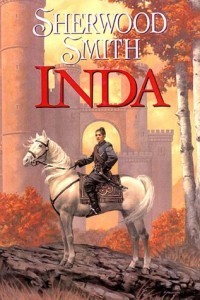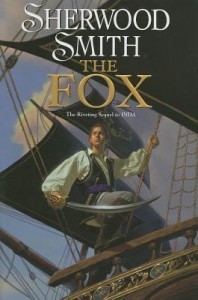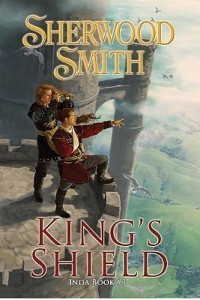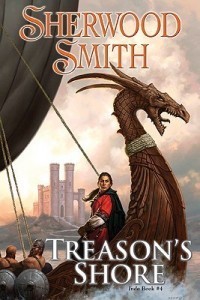Defining epic fantasy by example
You know how wildly disparate those definitions of Urban Fantasy were, that I posted about a couple of days ago, right? Well, I have an easy way to define Epic Fantasy, thus:
There, Epic Fantasy defined pictorially. Wasn’t that easy?
Oh, okay, I’m willing to venture, very very briefly, into what makes this series epic fantasy. Aside from its sheer length.
You have no doubt seen plenty of definitions of and lists of epic fantasy. In fact, as you may recall, Liz Bourke and Justin, Jared, and Tansy, all did the 25-essential-titles thing with epic fantasy a while ago.
Now, more than any other subgenre, this is one where I am constantly surprised by what other people consider “epic,” while for a change being able to define pretty clearly where I think everybody else is missing the boat. Like, I don’t think THE CURSE OF CHALION is epic fantasy. Nor Martha Wells’ WHEEL OF THE INFINITE. Both of those are on Liz Bourke’s list. To me, those might be high fantasy, whatever that is, but they are definitely not epic fantasy.
Epic fantasy may frequently involve grand quests and a substantial chance in world order, but those tropes are not sufficient to make a particular work “epic.” To be epic fantasy, a work must also possess sheer scope. I also find myself unwilling to declare that a work is epic fantasy unless it involves multiple points of view. Possibly I find this necessary just to create the sense of grand scale that is essential.
So, for me, epic fantasy must include: Grand scope and scale, multiple points-of-view, at least one grand quest, and a substantial change in the order of the world.
And if you want an example, well, see above.
What the INDA series offers:
Great characterization, with many point-of-view characters who are almost all compelling and enjoyable to read about. I don’t need to mention that pulling this off is quite a trick. Inda himself? He’s definitely not the perfect-uber-hero. He’s just fascinating, especially as Smith quite explicitly gives him some autistic characteristics. Tdor, Tau, the Fox, Evered, Jeje, Hadand, I hardly know what to say. They’re all fantastic characters, complex and realistic. Well, okay, Tau is a bit too good to be true, but he still feels realistic, somehow.
Great writing that doesn’t call attention to itself so that you can easily fall into the story.
A unique quality that makes the books easy to put down, then pick up again days later. You can slip right back into the story. I don’t remember any other series that has this quality for me. One thing that might contribute is that there are many smaller plot arcs that resolve in a sensible number of pages, so that you can find places to stop — but that’s true of other series, and if I stop for several days with them, I’m done. That’s not the case with this one.
Doorstopper length — the books run six to seven hundred pages, and we’re talking small font. For me, the pacing was just fine, because I enjoyed the worldbuilding and all or nearly all the points-of-view that were offered and didn’t long to get through one and back to another. But this series has more than physical heft. These books are not meant to be fast-paced adventure stories. Readers looking for a light beach read aren’t going to be happy with this series.
A society (I mean the Marlovan society, obviously) which is interesting and fun to read about, but basically unbelievable. The writing and characterization are so good you aren’t driven out of the story. So this isn’t actually a problem, at least not for me. So I don’t want to dwell on this. But, well, I will just say that, while an author is free to change human nature in order to build a fictional society, doing so really is going to make that society come across as implausible.
But, as I say, this didn’t bother me. What did bother me from time to time: I SERIOUSLY wanted Durasner to just take a moment to shove Erkric over the side of the ship. That was the second time in the series where I was rolling my eyes over peoples’ inability to JUST TAKE EFFECTIVE STEPS to get rid of a bad guy. What is WITH the good guys in this series that they have to let their WHOLE SOCIETY ride the edge of total disaster rather than just deal efficiently with the bad guy?
Oh, well, I guess that kind of expediency would make for a much shorter story.
Anyway, yeah, highly recommended when you have time to read something on the close order of 2800 pages. I didn’t, really, but I’m glad I didn’t realize how long this series was when I started it, because my year would have been the poorer for putting it off. But if you don’t have that much time, maybe Smith’s YA might be a better choice. I’ve heard good things about SASHARIA EN GARDE.








